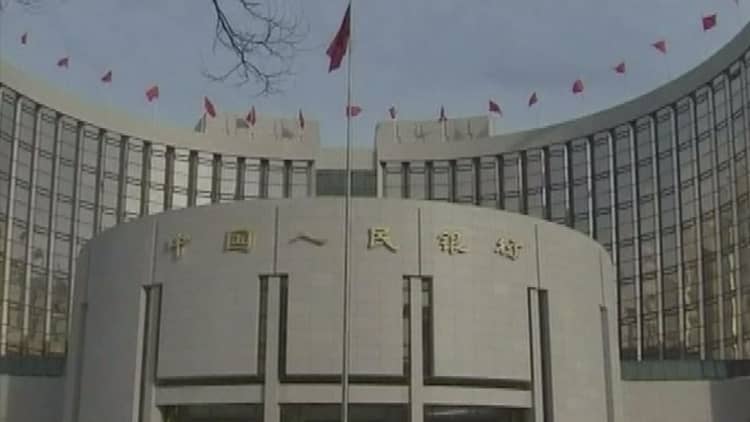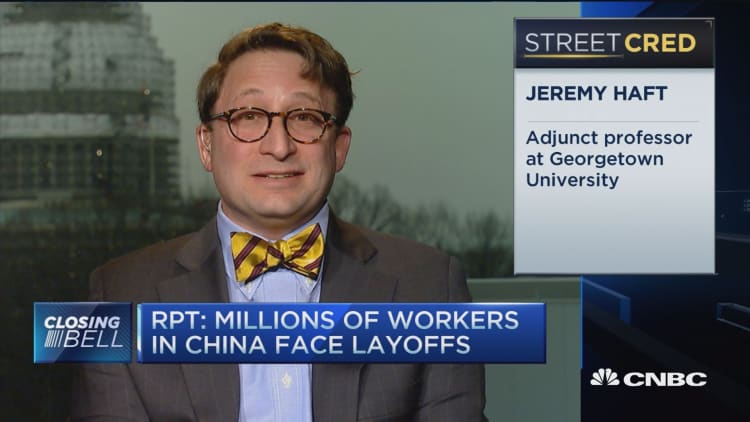
China's official foreign exchange reserves only include highly liquid assets, a top central banker said on Sunday, seeking to reassure investors that authorities have enough ammunition to prevent a sharp fall in the renminbi.
Investor sentiment towards China's currency has turned sharply negative since a surprise devaluation in August, amid unprecedented capital outflows and concern about the health of the economy. Concern over China's currency policy sparked a global market sell-off early this year.
The People's Bank of China has drawn on its foreign exchange reserves to curb renminbi weakness, but analysts believe the central bank may soon be forced to abandon this policy to prevent reserves dropping below dangerous levels.
Some bearish investors have also expressed skepticism about the reliability of China's official foreign exchange reserves data, which showed reserves at $3.2tn at the end of January — still the world's largest despite declining for 19 months.
Skeptics say the headline total of reserves exaggerates the resources available to support the renminbi since they suspect it includes illiquid assets such as foreign real estate and private-equity investments that cannot be readily deployed in currency markets.
Kyle Bass, the US hedge fund manager who has wagered billions that the renminbi and other Asian currencies will fall, believes China's true reserves are more than $1tn below the government's official total. Veteran investor George Soros has also suggested the renminbi may fall further.
More from the Financial Times :
Nancy Reagan, former First Lady, 1921–2016
What are the economic consequences of Brexit?
Brussels plans radical asylum overhaul
Yi Gang, PBoC deputy governor who until January was also head of the foreign exchange regulator, said on Sunday that only highly liquid assets are included in the closely watched headline reserves figure.
"I can clearly tell everyone here, those assets that don't meet liquidity standards are entirely deducted from official foreign exchange reserves," Mr Yi said at a press conference on the sidelines of an annual parliament meeting in Beijing.

"For example, some illiquid equity investments, some capital injections and some other assets where liquidity isn't good are entirely outside our foreign exchange reserves."
Beyond foreign real estate and private equity, analysts have questioned whether PBoC's recent use of foreign currency to inject capital into state-owned policy banks, including at least $93bn injected into China Development Bank and the Export-Import Bank of China last year. There is also uncertainty about whether China's capital contributions to two newly launched multilateral development banks, the Asia Infrastructure Investment Bank and the Brics bank, have been deducted.
China's central bank last year agreed to more stringent disclosure requirements under International Monetary Fund guidelines known as the Special Data Dissemination Standard.
"This liquidity classification is conducted strictly according to the IMF's standard. So the official foreign exchange reserves data that we currently report definitely meets liquidity standards. Those non-liquid assets definitely aren't included in what we report."
China will release February reserves data on Monday.


